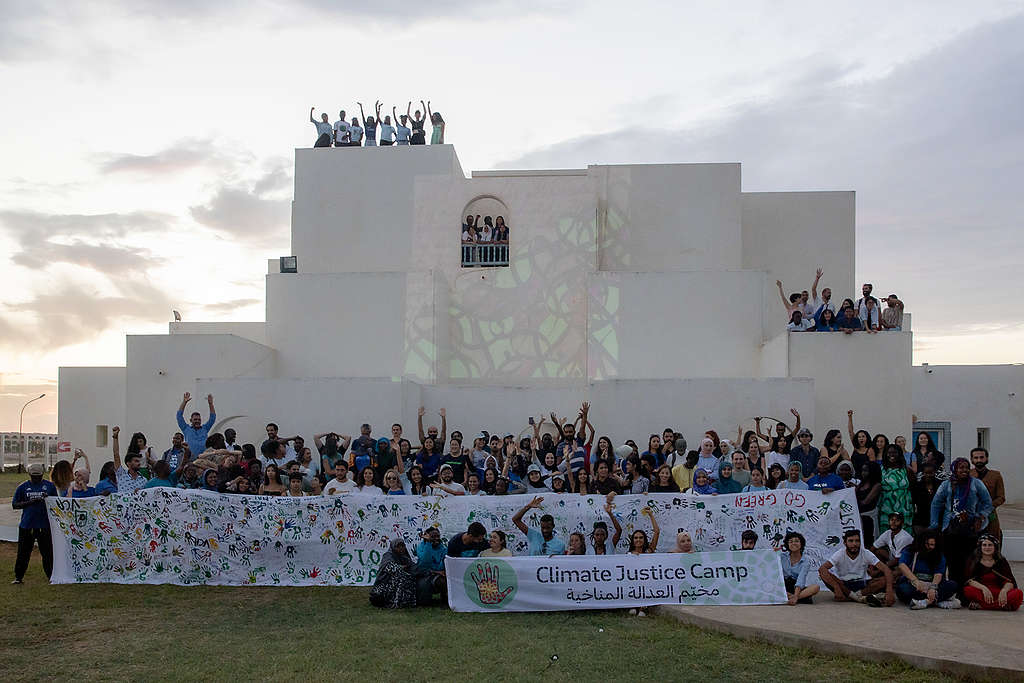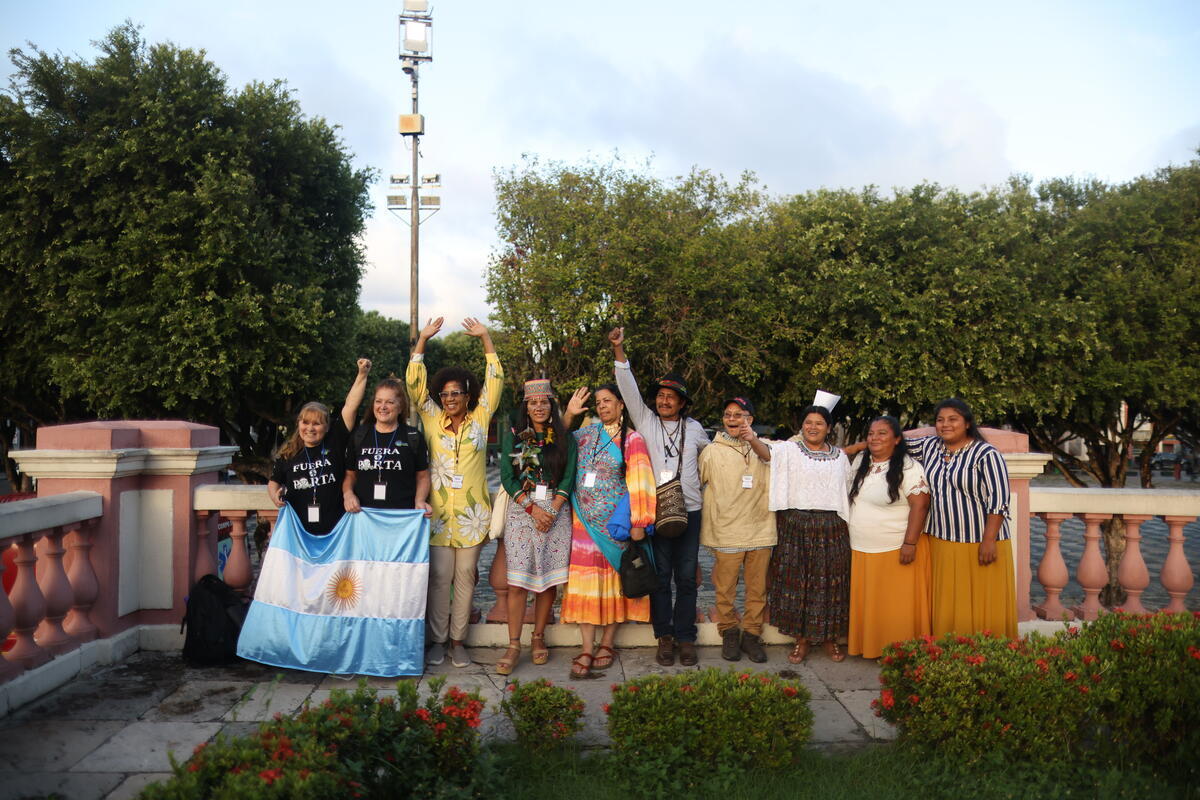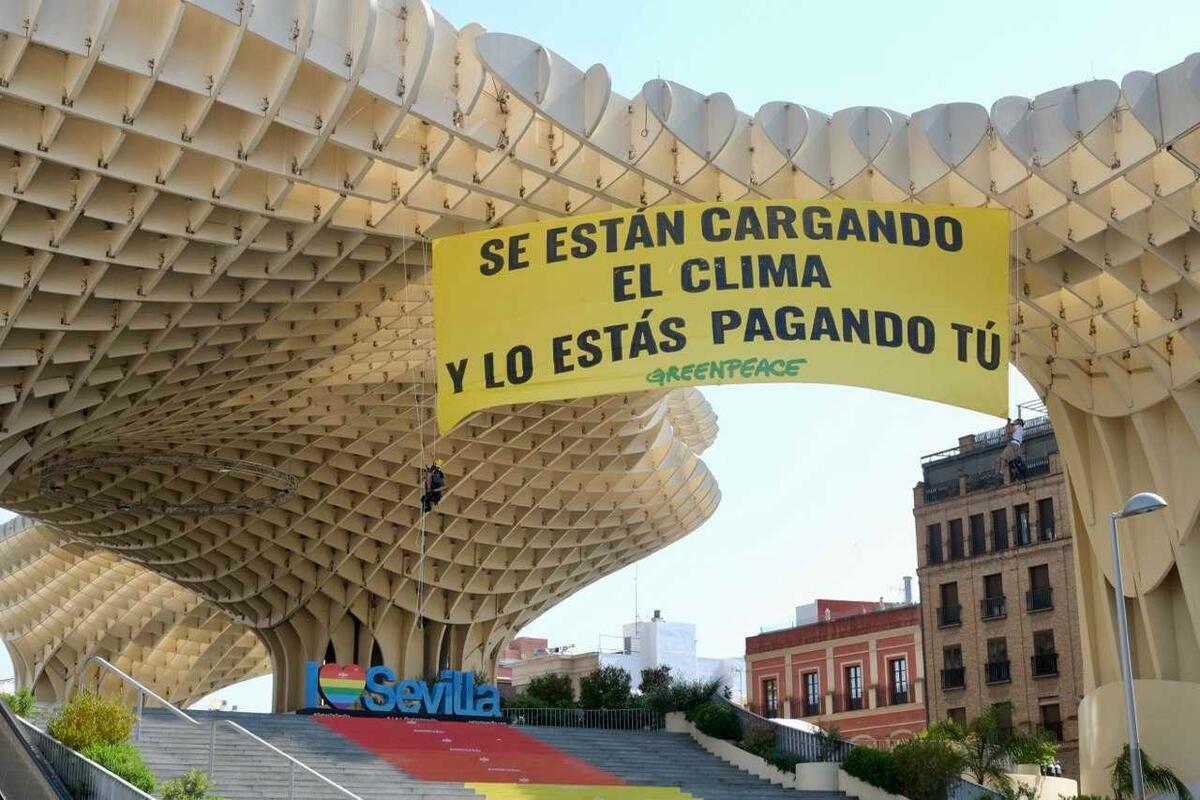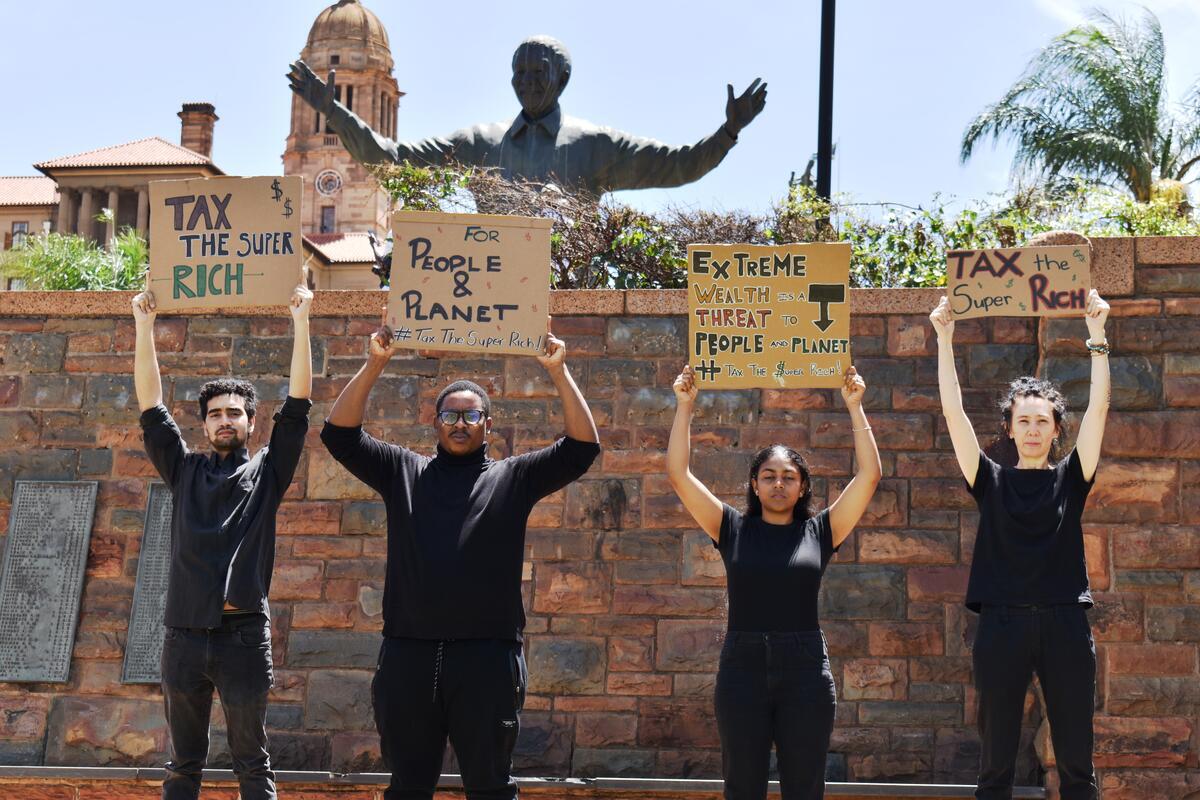Nabeul, Tunisia – The Climate Justice Camp in Tunisia has concluded with almost 400 participants strengthening a movement of solidarity across more than 65 countries around the Global South, in the lead-up to the 27th UN climate summit, in Egypt.

Led by dozens of climate groups, the week-long Climate Justice Camp kicked off on 26 September, and brought together those living in some of the world’s most affected regions. The camp focused on building intersectional solidarity and developing pathways towards long-term political and systemic change around climate adaptation, justice, access to energy, and loss and damage associated with the disproportionate impacts of the climate crisis.
Youth climate representatives attended from regions including Africa, the Middle East, Latin America, the Caribbean, Asia, and the Pacific. More than 30 groups collaborated over the past three months to bring the camp together.[1]
French-Tunisian calligraphy artist eL Seed, whose work features in Arabic around the world, collaborated with participants to create an art piece, which was then illuminated onto a building to bring the camp to a close on Friday. The workshop was one of more than 150 skill shares, workshops, and trainings held across the week.
eL Seed said: “As an artist and as someone who believes in causes, I have used my art and my voice to give an echo to voices around the world. It is a privilege to be able to help raise up the voices of the next generation of leaders from some of the most impacted parts of the world about climate change. We are human because we have emotion and art speaks directly to that emotion, no matter what your background, art speaks directly to you. It is powerful. I think one of our responsibilities as an artist is to try and create a change around us, and that’s what I have always tried to do with my work.”
Zainab Brie, 19, a participant from India, said: “Being part of the Climate Justice Camp makes me more optimistic about getting through the climate crisis we face today. We are the youth, and the future of tomorrow. This is an amazing platform for us to co-create, strategize, and prepare for COP27 and beyond to put demands in front of world leaders. Being from India, I took this opportunity to connect with organizers and youth leaders across the world, brainstorm further on solutions to the problems we face today, and represent my country’s culture, values and goals. The camp was full of learnings and collaborations among youth of the Global South as we unite together to be the change we wish to see on this planet.”
Hajar Al-Beltaji, 30, a participant from Egypt, said: “It was inspiring to see people coming together from different backgrounds, breaking down stereotypes and barriers to find common ground and values within our collective fight for climate justice. I listened to stories about how climate change has horribly affected people’s lives – many of whom have become refugees and lost family members. We all speak about the global impact of climate change, but it has been empowering to hear the voices of the most vulnerable communities. I come from a small city outside Cairo in Egypt, and will be attending COP27 this year. Attending this camp before the African COP in Egypt has connected me with climate leaders to share conversations about the environmental crisis in my country, as well as in other regions on the frontlines of climate change.”
Omar Elmawi, 34, a participant from Kenya, said: “I am one of the 3.6 billion people in the countries that are bearing the brunt of the climate crisis; we who have done little to nothing to cause the problem. Joining the camp allowed me to meet my fellow climate champions from other Global South countries. My aim is to show that we are not victims but a force to reckon with. We will find strength in our small differences and unity of purpose to stop the exploitation of Global South resources, including oil and fossil gas, for wealthier nations, and instead push for real solutions that provide accessible and affordable energy to the millions who don’t have access to energy.”
ENDS
Photo and video for media use are placed in this Google Drive folder.
For more information contact:
Sophie Schroder, Climate Justice Camp global communications, WhatsApp +64 21 086 47450, [email protected]
Nathália Clark, Climate Justice Camp global communications, WhatsApp +55 61 99137-1229, [email protected]
Madeleine Arnaout, Middle East, North Africa regional communications Officer, WhatsApp +961 76 343 278, [email protected]
Greenpeace International Press Desk: [email protected], +31 (0) 20 718 2470 (available 24 hours)
Notes:
1. Full partner list: Action Aid, Avocats Sans Frontiers, Adyan Foundation, AFA, African Youth Commission, Africans Rising, Amnesty International, Association Tunisienne de Protection de la Nature et de l’Environnement de Korba (ATPNE Korba), AVEC, CAN Arab World, CAN-Int, Earth Hour Tunisia, EcoWave, FEMNET, Green Generation Foundation, Greenpeace MENA, Hivos, Houloul, I-Watch, Innovation For Change Network (Tunisia), Novact Tunisia, Powershift Africa, Roots – Powered by Greenpeace, 350.org, TNI, Tunisian Society for the Protection of Nature, Ummah for Earth Alliance, Youth for Climate Tunisia



